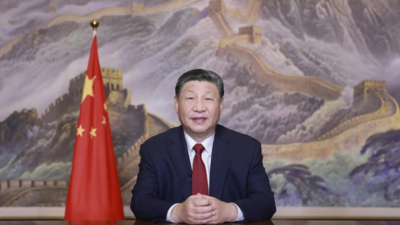China’s President Xi Jinping declared on Tuesday that Taiwan’s reunification with China is inevitable during his New Year’s address to the nation.
“Chinese people on both sides of the Taiwan Strait are one family. No one can sever our blood ties, and no one can stop the historical trend of the reunification of the motherland,” Xi stated in a televised speech.
Xi’s address comes weeks before Donald Trump‘s US presidential inauguration.Taiwan remains a significant point of disagreement between China and the US. While the US doesn’t formally recognize Taiwan, it is a key strategic partner and its main arms supplier. Potential US-China trade tensions loom as Trump has threatened increased tariffs against China for what he deems unfair trade practices. China denies these claims.
China views Taiwan, a self-governing island, as its territory and maintains it will use force if necessary to achieve control. Beijing has increased pressure on Taiwan, conducting three major military exercises since President Lai Ching-te assumed office in May. The most recent drills, earlier this month, were reportedly the largest in years, according to Taiwanese officials.
Xi also addressed the country’s economic situation during a meeting with a senior political advisory group on Tuesday. He announced that the nation would “more proactive” macroeconomic policies in the coming year, according to state media reports.
CCTV quoted Xi’s address at a New Year’s tea party to the National Committee of the Chinese People’s Political Consultative Conference, emphasising the necessity for extensive reform advancement, increased high-level economic accessibility, improved balance between development and security, alongside the implementation of more dynamic and result-oriented macroeconomic strategies. He said, “We must… further comprehensively deepen reform, expand high-level opening up, better coordinate development and security, (and) implement more proactive and effective macroeconomic policies.”
China has faced significant economic challenges throughout this year, primarily due to a real estate market downturn, reduced consumer spending, and escalating public sector debt.
The government in Beijing has implemented several robust initiatives in recent months to stimulate economic growth, including reducing interest rates, removing housing purchase restrictions, and providing debt relief measures for regional administrations.
However, economic experts emphasise that additional direct fiscal interventions targeting domestic consumer spending are essential for achieving comprehensive economic recovery in China.




